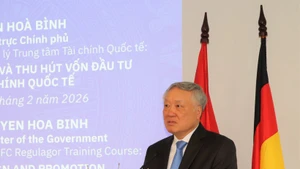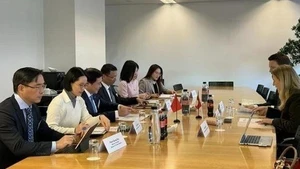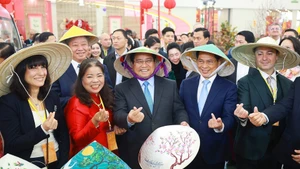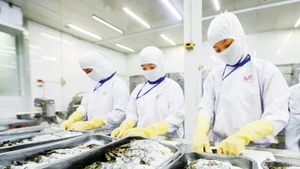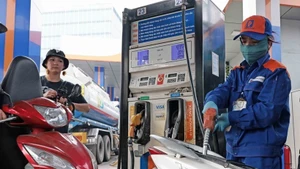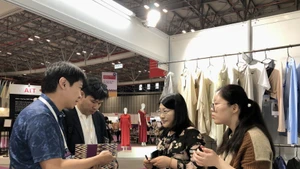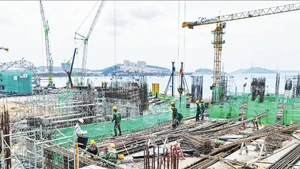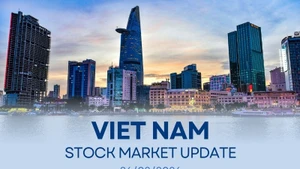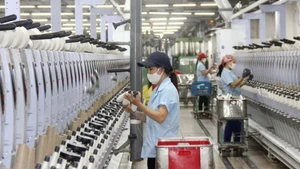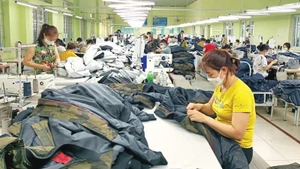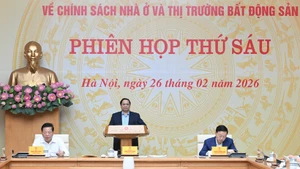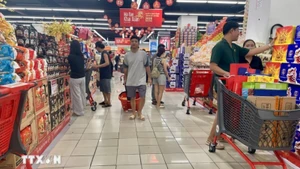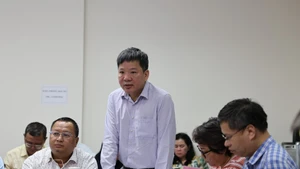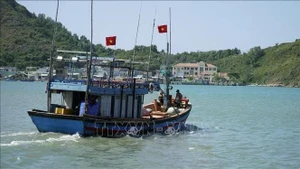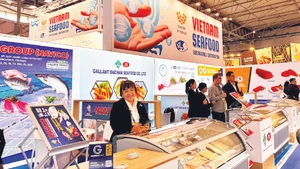The meeting was chaired by Antonio Tanjani, Deputy Prime Minister cum Minister of Foreign Affairs and International Cooperation of Italy. The G7 includes Italy, Canada, France, Germany, Japan, the United Kingdom, and the United States. Its main goal is to address the tensions and conflicts that threaten global trade and sustainable and inclusive growth.
In addition to the trade ministers of the G7 member countries, the meeting was attended by trade ministers and government officials from India, New Zealand, Argentina, Brazil, the Republic of Korea (RoK), and Vietnam, as well as representatives from the World Trade Organisation (WTO) and the Organisation for Economic Co-operation and Development (OECD).
This was the first time that the G7 Trade Ministers' Meeting has invited the Vietnamese Minister of Industry and Trade to participate, showing that Italy and the G7 countries highly appreciate Vietnam's role in promoting global trade development. Italy’s Minister Antonio Tanjani remarked that Vietnam is a “shining example” and a successful model of economic growth based on the achievements of international economic integration, thereby promoting trade, attracting investment, and successfully participating in globalisation and reshaping regional and international supply chains.
During the meeting, the WTO Director-General also emphasised that Vietnam, along with some other developing members, is a testament to the success of international integration and an outstanding example in implementing supply chain diversification.
Speaking at the meeting, Minister Nguyen Hong Dien stated that for a developing country like Vietnam, trade liberalisation is considered an important solution and a major driver for development. Over the past nearly 40 years, from a war-torn and underdeveloped country, Vietnam has become one of the 40 largest economies in the world as well as ranks among the top 20 regarding international trade, the top 15 in attracting foreign investment, and the top 45 in the Global Innovation Index.
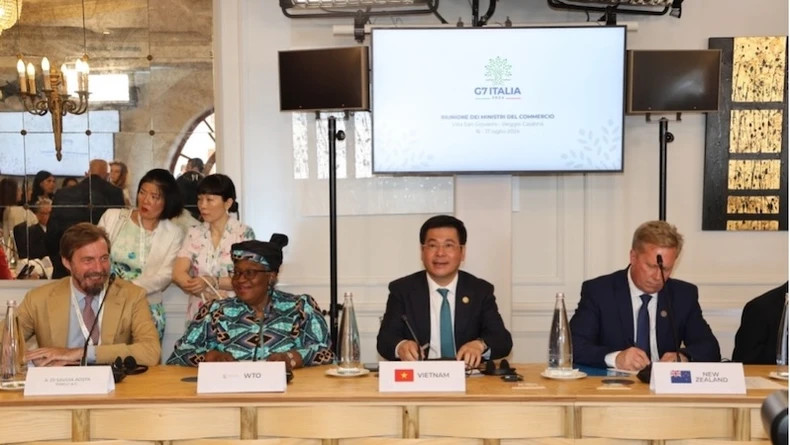 |
| Minister Nguyen Hong Dien speaks at the meeting. |
In recent years, Vietnam has consistently maintained a relatively high and stable GDP growth rate, averaging 5.5% per year during the 2021-2023 period. Growth reached 6.42% in the first six months of 2024 and it is projected to achieve a figure of 6.5%-7.0% for the entire year.
The above achievements are attributed to Vietnam's consistent implementation of an independent and autonomous foreign policy, diversification and multilateralisation of international relations, and proactive and active integration into the global economy in a comprehensive, substantive, and effective manner. Vietnam has focused on implementing three strategic solutions: institutional reform, infrastructure development, and human resource improvement, while also promoting development based on science, technology, and innovation.
Minister Nguyen Hong Dien stressed that Vietnam highly values the G7 Trade Ministers' Meeting Declaration in February, which reinforced a rules-based, inclusive, free, and fair multilateral trading system with the WTO at its core. Vietnam supports the WTO in promoting discussions on key areas such as fisheries and agricultural subsidies.
In response to the increasing trend of adopting trade protection measures and subsidies or erecting technical barriers to boost domestic production and replace imports, Vietnam has called on the G7 and its partners to immediately limit the establishment of trade barriers, especially non-tariff measures that disrupt supply chains for essential goods.
The Vietnamese Minister affirmed that Vietnam seeks to cooperate with G7 members in aspects including supply chain diversification; promoting investment in synchronised, modern, and climate-resilient transportation infrastructure and logistics services development; and advancing technological innovation and the digital transformation of supply chains.
As the success of businesses is also Vietnam's success, Vietnam commits to creating the most favourable conditions for G7 enterprises to invest and conduct long-term, stable and efficient business in Vietnam.
* On the sidelines of the expanded G7 Trade Ministers' Meeting, Minister Nguyen Hong Dien hosted a bilateral meeting with Antonio Tajani, Deputy Prime Minister cum Minister of Foreign Affairs and International Cooperation of Italy.
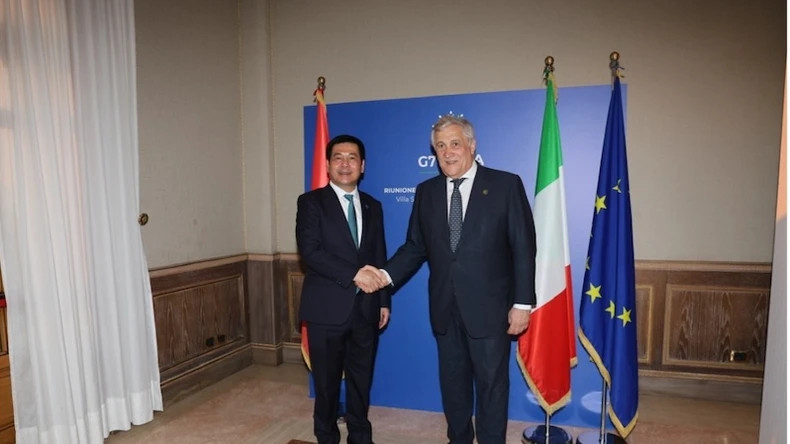 |
| Minister Nguyen Hong Dien hosts a bilateral meeting with Antonio Tajani, Deputy Prime Minister and Minister of Foreign Affairs and International Cooperation of Italy. |
Deputy Prime Minister and Minister of Foreign Affairs and International Cooperation of Italy Antonio Tajani affirmed that Italy always values and wishes to further strengthen the cooperation between the two countries, especially in the fields of economics, trade, industry, and energy. Specifically, Italy considers Vietnam a significant partner in ASEAN and highly appreciates the important role of the Ministry of Industry and Trade in the Joint Committee on Economic Cooperation as a bridge connecting the businesses of the two countries.
Minister Dien stated that Italy is currently one of Vietnam's most important partners in the EU in various fields, and is also Vietnam's third-largest trade partner in the EU. Conversely, Vietnam is Italy's largest trade partner in ASEAN. The average annual bilateral trade growth of about 10% in recent years and the continuous increase in the number of Italian investment projects in Vietnam demonstrate the great potential for cooperation between the two sides.
To further promote bilateral economic and trade relations, Minister Nguyen Hong Dien proposed the organisation of the 9th session of the Joint Committee on Economic Cooperation between the Ministry of Industry and Trade of Vietnam and the Ministry of Foreign Affairs and International Cooperation of Italy in Hanoi in the fourth quarter of 2024.
Additionally, the two sides should promote the areas of Italy’s strengths and Vietnam’s demand such as supporting Vietnamese enterprises to improve their competitiveness, particularly in the supporting industries of textiles, garments, and footwear to participate in the global supply chain. Within the framework of implementing the EVFTA, Vietnam requested that Italy enhance information exchange and provide updates on the regulations of the EU in general and Italy in particular regarding goods imported from Vietnam. Furthermore, Italian investors are encouraged to invest in Vietnam's agricultural product processing, food processing, fashion design, and supporting industries.
* Minister Nguyen Hong Dien also met with WTO Director-General Ngozi Okonjo-Iweala while in Italy. The WTO Director-General highly appreciated Vietnam's impressive economic and trade growth in recent years and acknowledged Vietnam as a "shining example" of economic growth based on the achievements of international economic integration, thereby promoting trade and investment while successfully participating in globalisation and reshaping regional and international supply chains.
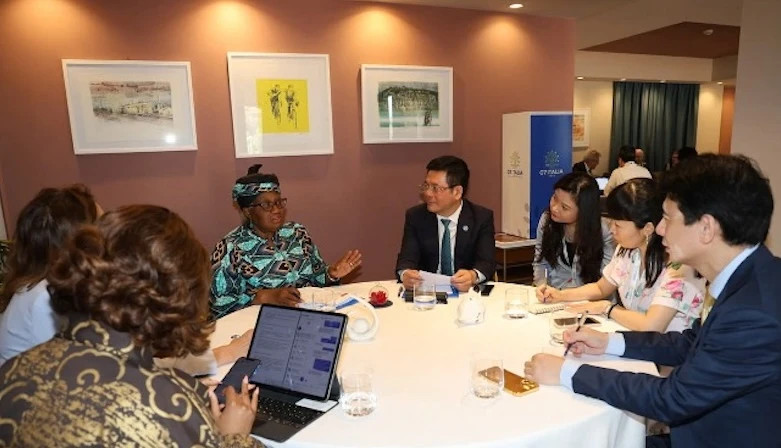 |
| Minister Nguyen Hong Dien works with WTO Director-General Ngozi Okonjo-Iweala. |
Minister Nguyen Hong Dien stated that Vietnam has signed and implemented 16 Free Trade Agreements (FTAs) and is preparing to conclude negotiations on 3 FTAs with key partners in Europe, the Americas, and the Middle East to establish open, stable, and long-term supply chains. Most recently, Vietnam signed Pillar II within the Indo-Pacific Economic Framework for Prosperity (IPEF) Agreement Relating to Supply Chain Resilience with 13 partners.
The Vietnamese Minister expressed his desire that under these mechanisms, the WTO and global economies will promote more substantial and effective partnerships and persist in multilateral cooperation, considering it the key to addressing all complex emerging challenges. Along with the G7, Vietnam reaffirmed its commitment to supporting all efforts and initiatives to reform the WTO in three areas including monitoring, negotiation, and dispute settlement. Vietnam also hopes that G7 countries will provide more active and effective contributions to resolving the deadlock of the Appellate Body (AB).

